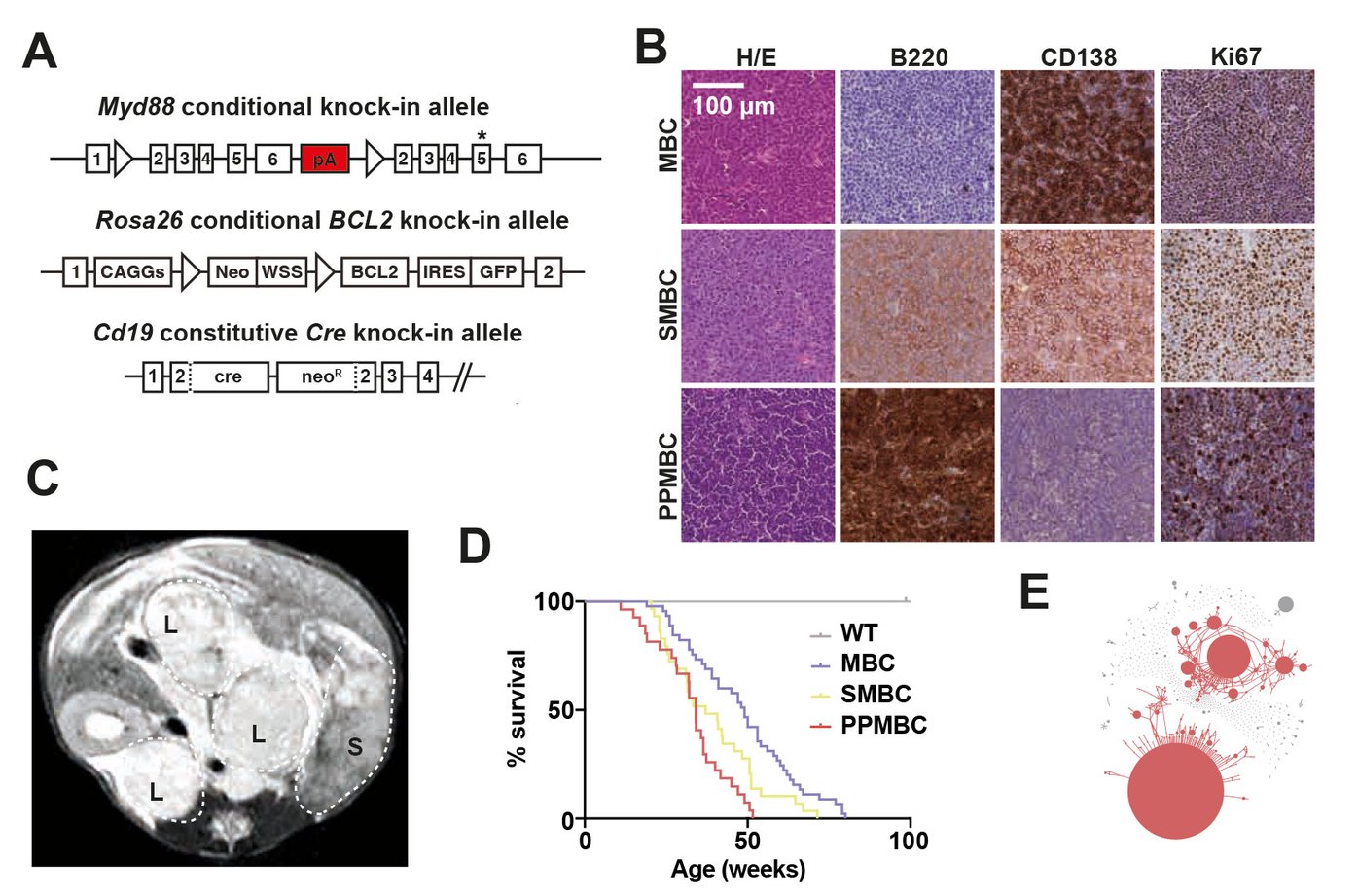In vivo research platform and model generation
A central element of our translational research activities is our in vivo research program. In this context, we are developing a series of genetically engineered mouse models that spontaneously develop different subtypes of aggressive lymphomas. These activities are centered around a number of oncogenic alleles, including Myd88, Spib, Prdm1, Cd79b, Ezh2, Bcl2, Card11, Trp53, Cdkn2a, Atm and others. Our models make use of dual and triple recombination strategies, as well as conditional Cas9 technology, to afford modelling of multistep lymphomagenesis. In addition, we deploy hematopoietic stem cell transplantation technology in conjunction with CRISPR-mediated genome editing technology for rapid model generation.
Next to the development of autochthonous models, we are developing (humanized) PDX and CDX model libraries. This approach is catalyzed by the intimated interaction with our clinical lymphoma program.
These in vivo modeling activities are flanked by the development of a pre-clinical imaging program, which enables longitudinal monitoring of lymphoma development, drug response and resistance. We currently deploy a 1T small rodent MRI system that is localized in our animal facility. We further have access to small rodent PET-CT and PET-MRI scanners, as well as an IVIS scanner. Next to this imaging platform, we have access to professional rodent pathology services, a metabolomics unit, which facilitates in vivo metabolic profiling and metabolic flux analyses.
